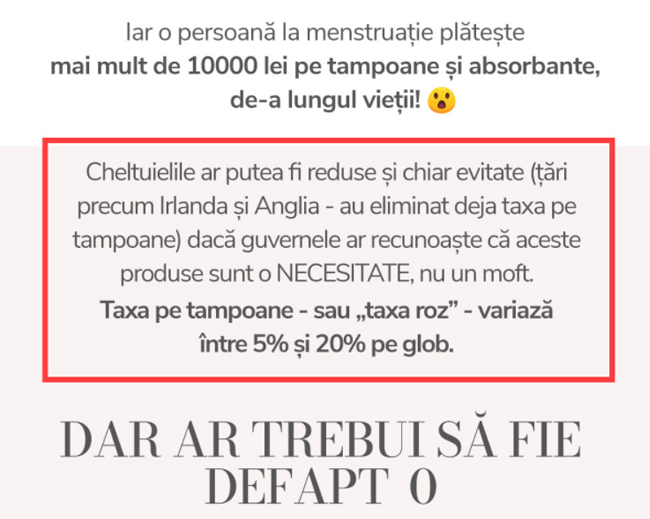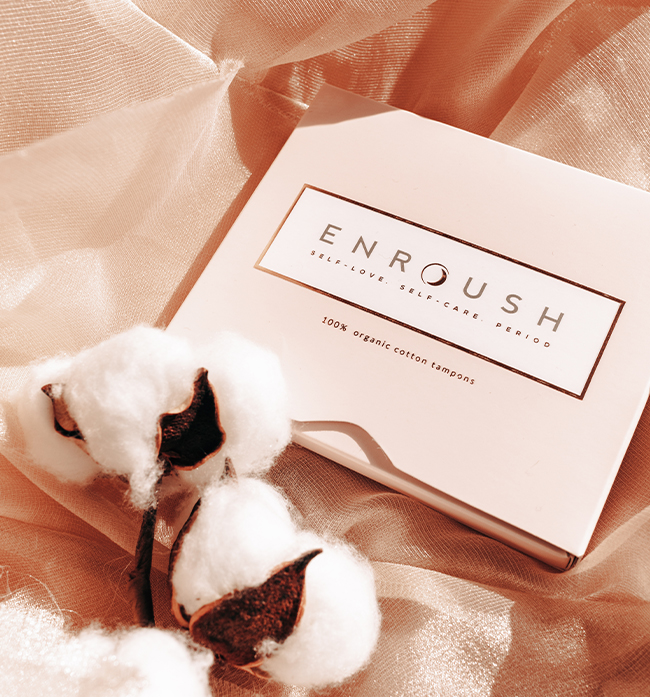
You probably remember what it was like for you, the first time you had your period. Knowing what was going on, getting menstrual products, and someone making sure you were informed—or, conversely, the lack of all those resources—helped you make sense of what it's like to have your period.
Because the first experience usually defines this adventure that you will have every month for almost 40 years of your life. The perspective from which you look at menstruation at a given moment was established then, at puberty. But it's important to differentiate between what it's like to be told that being on your period is something natural versus something "dirty." Because while the first statement is the correct one, many times and in many societies menstruation is still a taboo subject, and it brings with it stigma and shame for many people who experience menstruation. Which, over time, causes the phenomenon of menstrual poverty.
What is menstrual poverty?
The term "menstrual poverty" is relatively new, but has been present in protests and debates for decades, since the beginning of feminist activism, in the context of gender inequality in education.
Menstrual poverty is a current problem in the EU and beyond, and refers to the lack of access to care products and education, as well as the lack of sanitary facilities or their management.
It is estimated that currently one in ten girls cannot afford menstrual products.
In Romania alone, 4.8 million people menstruate. Of these, 700,000 are teenage girls. Many cannot afford to buy menstrual products each month, and one in four people have found it extremely difficult to manage their period during the pandemic.
In recent years, several European states have already passed laws by which menstrual products are free, but others do not consider them basic products, on the contrary, they tax them in the same way as luxury products. In this context, the European Parliament invited all member states to eliminate the tax on menstrual care. 
Not all countries adopt such laws - yet - but there is optimism: only through education and information will things improve for people who have experienced menstrual poverty, because it all starts with stigma and shame. And when the stigma is no longer associated with the natural process of menstruation, we all benefit. Especially where this stigma often leads to extreme cases, as in some parts of the world where menstruating women are banished and punished into isolation, often putting their lives at risk.
And unfortunately, there are still communities that prioritize boys over girls, giving them more opportunities for education. And taboos about menstruation only make matters worse, causing absenteeism and large numbers of girls simply dropping out of school.
The phenomenon of menstrual poverty is a complex one. And to combat it, we need as many initiatives as possible, both from the state and from society. There are, however, programs and NGOs that fight menstrual poverty. Iele Sânziene, the Pe Stop Association, the "Absorbent for all" initiative are just two examples, but more efforts are needed in Romania.
Fortunately, individual activism can be one of the best ways to combat menstrual poverty and, at the same time, make positive changes in environmental protection. Are you wondering how?
It's all about starting with small steps: talking openly about menstruation, learning and protecting your health.
… and how can it be combated?
What can researchers, institutions, health care providers and, last but not least, us do to reduce menstrual stigma and combat menstrual poverty? If you're not sure where to start, here are some suggestions.
Normalizing conversations
Conversations around topics related to the menstrual cycle and menstruation should be natural and natural. It is probably the simplest and most essential step in reducing the sense of shame and stigma felt by some people, no matter where they come from in the world. And not only that: boys also need to be educated about menstruation to lessen the perpetuation of menstrual taboos.
Supporting research
Medical professionals and health care providers are constantly researching new ways to reduce menstrual poverty. But there are still issues that should be addressed, and the lack of sanitary products and facilities still affects a considerable number of menstruating women.
Facilitating access to appropriate products
Lack of access to appropriate, organic menstrual products puts many people's health at risk. It is important that institutions and medical centers, in particular, educate on the importance of using organic products as well as the need for access to them, in order to reduce health risks and protect the environment.
The fight for menstrual equity
Finally, recent menstrual equity moves are starting to pay off, such as in Scotland - which has mandated the distribution of free menstrual products in all public bathrooms (including restaurants and pubs), in addition to offering them in schools and universities. At the same time, the UK removed the additional tax on menstrual products. But there is more work to be done, policies are still needed to make menstrual products more accessible and safer.
Choose organic cotton products

When it comes to the level of awareness that people have about the impact of each consumer on the environment and nature - we still have a lot to learn. And all the more since menstrual products have a direct implication not only in nature but also on our body. The vagina is one of the most absorbent parts of the body, and what we choose to use on our period directly affects us. So here are 5 reasons why you should choose organic cotton products:
- In the intensive cultivation of cotton, toxic pesticides are used, as a result, conventional cotton is harmful to nature and health. Switching to organic cotton can reduce and eliminate toxic waste from conventional crops.
- 100% organic cotton products (GOTS certified) have only pure ingredients, are safe for your body and do not contain toxic chemical ingredients harmful to health
- Conventional products contain plastic, which contributes to pollution, a serious problem in today's context. Just one package of conventional absorbents contains the same amount of plastic that you find in 5 bags.
- Organic cotton products indirectly protect animals, especially birds and bees, because the cultivation processes do not emit toxic gases for them.
- And last but not least, by choosing organic products, you support farmers who work in an ethical way, without risks to health or nature.
When you address the topic of menstrual poverty head-on, you can make a difference. And, fortunately, in Romania too there are movements, programs and petitions that promote concrete solutions. Today, more and more organizations are involved in menstrual education ( Pe Stop Association , Lele-Sânziene Association , SEXUL vs BARZA Association , FILIA Center , E-Romnja Association , COMMA Association ).
"The Iele Sânziene Association teaches young women from vulnerable communities what menstruation is, how it occurs and how to use tampons and absorbents. In a country like Romania where 415,000 teenage girls are at risk of poverty and social exclusion, the girls who hold menstrual and puberty education workshops have to fight, simultaneously, the stigma surrounding menstruation and the myths with which it comes as a package. And that could actually put future women at risk." ( source )
Because you surely want a future without stigma and without taboos around absolutely natural processes for the human body.
And while there is progress, we still have quite a long way to go. So our advice: start small. Open the topic today. Because whatever you do, no matter how small, has an impact on the world you live in.






















